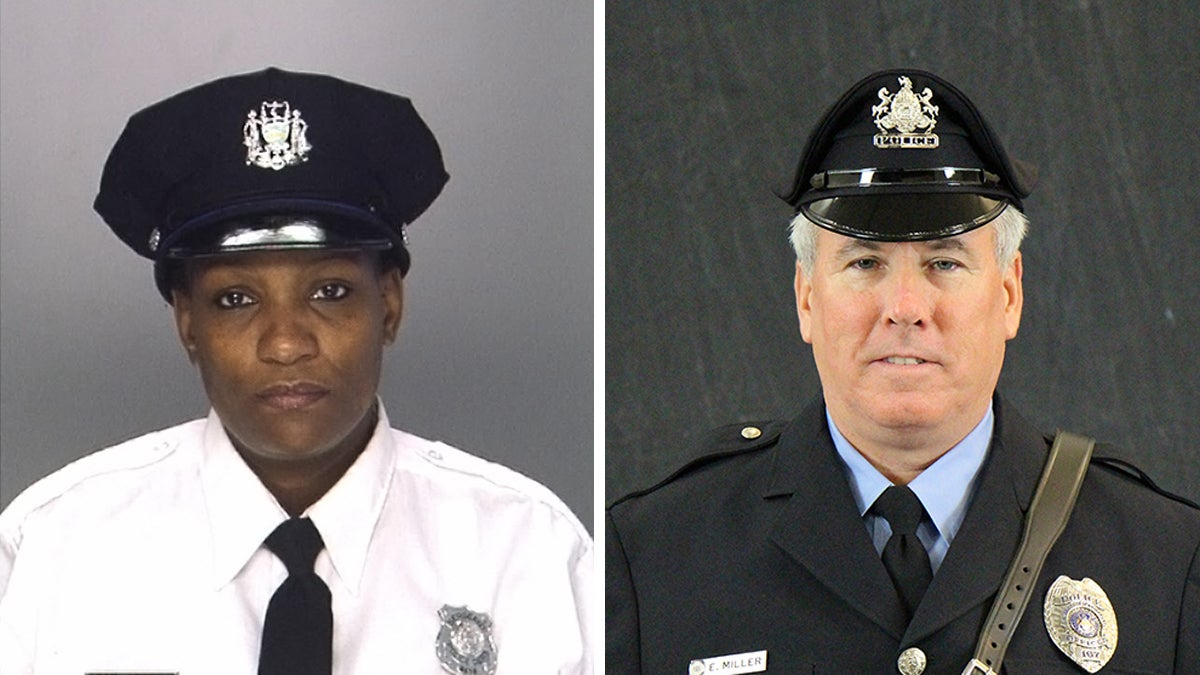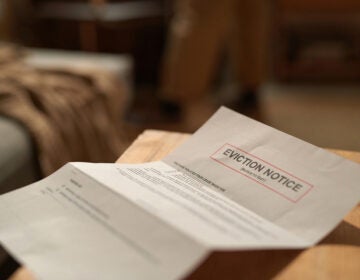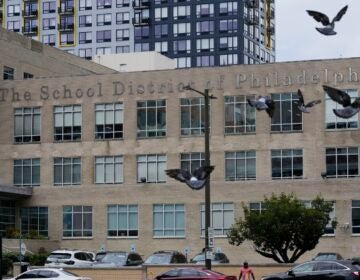Weekend gun violence has Philly cops on high alert

From left: Philadelphia Police Sgt. Sylvia Young and University of Pennsylvania Police officer Edward Miller both survived gunshot wounds sustained on Friday night in West Philadelphia. (Philadelphia Police Department / University of Pennsylvania Police)
Three days after Nicholas Glenn went on a shooting spree in West Philadelphia that killed a young woman and injured five others — including two police officers — a morbid Monday-morning quarterbacking unfolded across Philadelphia that had everyone from police officials to the Catholic archbishop asking questions like:
What led Glenn, a 25-year-old career criminal from West Philly once implicated in a gang rape, to act on his simmering resentment against law enforcement?
Could he have been stopped?
And with anger about criminal injustice simmering in many inner-city communities, how many other Nicholas Glenns are out there waiting to strike?
Many agreed the answers to such questions lie within the community.
“Someone knew this young man had that gun. Someone knew, and no one said anything,” said David Fisher, who heads the National Black Police Association’s Greater Philadelphia chapter. “Those people who knew are just as responsible for the acts he committed, because they could have stopped it. They could have taken his gun from him. They could have reported him to the police.”
Fisher added: “We need to change attitudes in our communities. You need to either support your local police or make friends with your local criminals.”
Asa Khalif, a Black Lives Matter organizer, agreed that the community failed Glenn, who was a troubled foster child who bounced in and out of jail.
“This young man could have gone another way, had he had the support of the community,” Khalif said. “Every day, there is some sort of negative interaction as a black man in America. Some people just can’t handle the pressure of oppression. When you dehumanize people, people start acting subhuman.”
Khalif added: “I’m not justifying it by any means. But as black men who are constantly targeted, I can understand how people snap, especially when they’re in a corrupt system that is not there to support them and give them the help that they deserve … We put fuses out all the time and counsel people how to channel their anger. If you don’t have a positive way to channel that, whether it’s through your art, or protest, or rap, you’re setting up to snap.”
Chad Dion Lassiter, a University of Pennsylvania professor of race relations and president of Black Men at Penn School of Social Work, agreed: “There is a theory that hurt people hurt other people. There are individuals that get the necessary help they need as it relates to mental health and counseling. What we see here is a lack of coping.”
Philadelphia Archbishop Charles J. Chaput weighed in on the weekend violence with a call for gun control, as well as a collective change of heart.
“Combine easy access to guns with a culture that breeds resentment, self-focus, personal license, and contempt for human life and the law, and what you get is what happened over the past weekend: the terrible shootings of innocent people by Nicholas Glenn and others,” Chaput said.
“Taking away the guns — making them far more difficult to acquire — is the easy part, but it doesn’t begin to address the deeper moral and social dysfunctions of American urban life,” Chaput added. “Violence begins in the heart before the hand picks up a weapon. Violence is now part of the American Way from womb to tomb, and it should surprise no one when it hits home locally. I ask Catholics across the archdiocese to pray in the coming days for the victims of the weekend shootings and their families, and for leaders who can bring genuine peace to our community.”
Police Commissioner Richard Ross called Glenn’s murderous rampage “one of the most violent acts that we’ve seen in Philadelphia in a long time.”
It started when he ambushed police Sgt. Sylvia Young, shooting 18 rounds at her as she sat in her marked cruiser at 52nd and Sansom streets. Young, who was wearing a bulletproof vest, miraculously survived.
As Young radioed for help, Glenn ran off, firing his 9-mm, semi-automatic Ruger with an obliterated serial number into the open doorway of the nearby Maximum Level Lounge, where his bullets hit the bar manager and a barmaid who were helping a disabled customer in a wheelchair. As he moved on, he fired at a couple in a parked car, killing 25-year-old Sara Silah and injuring her friend. He then encountered University of Pennsylvania police Officer Eddie Miller on 48th Street near Market and shot the officer in the hip and ankle.
Glenn died in a shootout with Philadelphia officers in an alley. Police later found a letter labeled “Doomed People” outlining, in their words, his “hatred toward his probation/parole officers and police among other unclear statements.”
Glenn’s rampage wasn’t the only violence that marred the weekend.
Saturday night, a teenager fired three shots at a police officer on South Street near 8th. The officer was uninjured, and the alleged gunman, 19, was taken into custody after a chase.
And several bombs exploded in northern New Jersey and New York City over the weekend, injuring dozens and sparking fears of terrorism. Police arrested the suspect in those attacks after a shootout with him today in Linden, New Jersey.
In Philadelphia, Ross ordered officers to double-up on patrols in response to the violent weekend.
The Fraternal Order of Police Lodge 5 will donate the $30-a-ticket proceeds from its fourth annual Monday Night Football tailgate party tonight to Young and Miller.
Young remains at Penn-Presbyterian Medical Center today recovering from arm and shoulder wounds. Miller, who got a surprise bedside visit from a few Eagles players over the weekend, was released from the hospital Sunday. He joined Penn’s police force two years ago after spending 30 years with the Philadelphia Police Department in its marine, traffic and narcotics units and the 16th District, FOP President John McNesby said.
“It’s really a sad thing that we’ve had to do it so many times in the last year or two, not only here, but around the country,” McNesby said of fundraisers for attacked officers. “The feeling out there [among officers] is of alertness, caution, and the unknown, you never know. Everybody is on high alert, a little bit on their heels, compared to what they normally do.”
WHYY is your source for fact-based, in-depth journalism and information. As a nonprofit organization, we rely on financial support from readers like you. Please give today.




